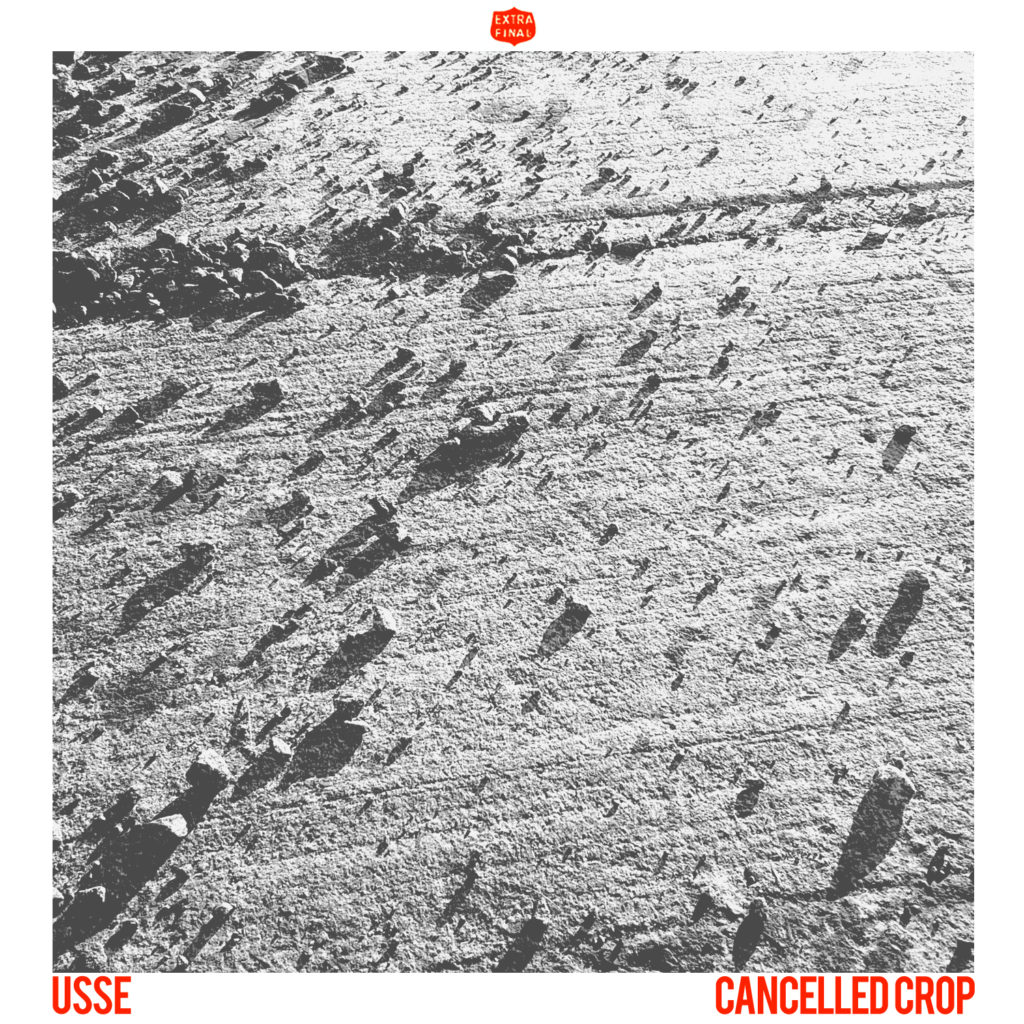Matt Carter
Jud Crandall talks about the band and their upcoming EP release show October 21 in Saint John.

Usse is one the latest musical ventures to surface in Saint John, a city known for pushing the boundaries of convention through all forms of artistic disciplines. So it comes as no surprise that this trio, comprised of former Wooden Wives members Jud Crandall (saxophone/guitar) and Dan Chamberlain (synthesizer) together with drummer/percussionist Emily Saab and bassist Erin Muir, would create something far-reaching and obscure, yet still managing to somehow fit comfortably within the city’s well-defined auditory landscape.
The band made its debut in March with the released of the two-track EP, In Through Beyond/Maximilian, Help Me and are now preparing to release a limited edition cassette on October 21. Cancelled Crop will be available digitally with only 50 hand-numbered physical copies being produced.
In advance of the October 21 release show that will be happening at Taco Pica (Saint John) with performances by Usse, LAPS and Robert T, we put a few questions to Jud Crandall to learn a little more about the band and the upcoming release.
Grid City Magazine: Tell us about the EP. There are soundscape and rock influences while still keeping with your history of political undertones. Where are you coming from here?
Jud Crandall: We had been throwing around a lot of ideas as far as sources of inspiration go for the tape, some saxophone skronk and spectral percussion, driving motorik rhythms, thoughts towards dub and early industrial music, and some sculptural melodic ideas. We replaced the snare with cowbell to change the percussive landscape, and basically adopted the rule of repeating the loop until you had possibly gone too long, and then to keep going. From there, Cancelled Crop hardened into this 10-ish minute lock groove. Neoliberalism Will Perish The Diversities Of Agriculture is a deconstructed instrumental version of all that, and Angel Of The Revolution is an elegiac overture of sorts, before you get into the next 20 minutes of this unending rhythm.
Taken as a whole, those undertones of vague political portent are concerned with ideas of interrupted potential and being, in particular human roles and conflict relating to agricultural or environmental disruption. I won’t go down the rabbit hole too much, but the curious can use their Googles for sourcing some of what we’re referencing here, from some very early science fiction writing Dan brought to the group, to the suicide protest of farmer and activist Lee Kyung-hae in 2003.
How did this project come together? Was there a “let’s do something completely different” discussion or is this simply the result of three people sitting down to make some music?
I had gotten an invitation to submit a song to a paper album that The Famines were releasing on their Pentagon Black label, and with no active band at the time it was an opportunity to put something new together. I had been playing and talking lots with both Dan and Emily prior to this time through different projects and conversations, and we shared an interest in doing something not dependent upon rock & roll. “Not rock” has kinda become our version of Velvet Underground’s formative “no blues” rule. Emily’s background is in contemporary visual and conceptual art, as well as violin, though she plays drums and percussion here, Dan skipped the rock boat completely back in the day in favour of electronic oriented music, and I had spent the previous year binging almost exclusively on stuff like krautrock and free jazz. Erin has joined us since recording Cancelled Crop, to bolster the rhythmic foundation, and she brings an enthusiasm for improvising that fits perfectly. Topside, Dan and I can focus more on textural efforts rather than more conventional accompaniment, so everything is less about guitars and solos, and more about different kinds of propulsion and structure.
What do you hope to achieve with this project? Are you building community, spreading a message or simply filling a sonic void?
Max Roach once said, “I will never again play anything that does not have social significance.” This can be read not only as a creative choice, but an observation of fact as humans in the world. If your voice is indifferent to something like colonialism, where does your own comfort place you in relation to another person’s survival? Watching some of the Blue Jays game this weekend, I wonder if many people appreciate how one function of Cleveland’s branding is to normalize colonialism. These choices or perspectives in music, sport or whatever are not without consequence. The idea is that diversification of sound, improvising and taking risks, and making choices with a sense of accountability, can be a form of confronting the more prescriptive values present in things like religion or capitalism as much as in music making, so we just want to be mindful of the choices we make as artists acting in that capacity.
Usse + LAPS + Robert T. | October 21, 2016 | Taco Pica | 10 pm | View Event




